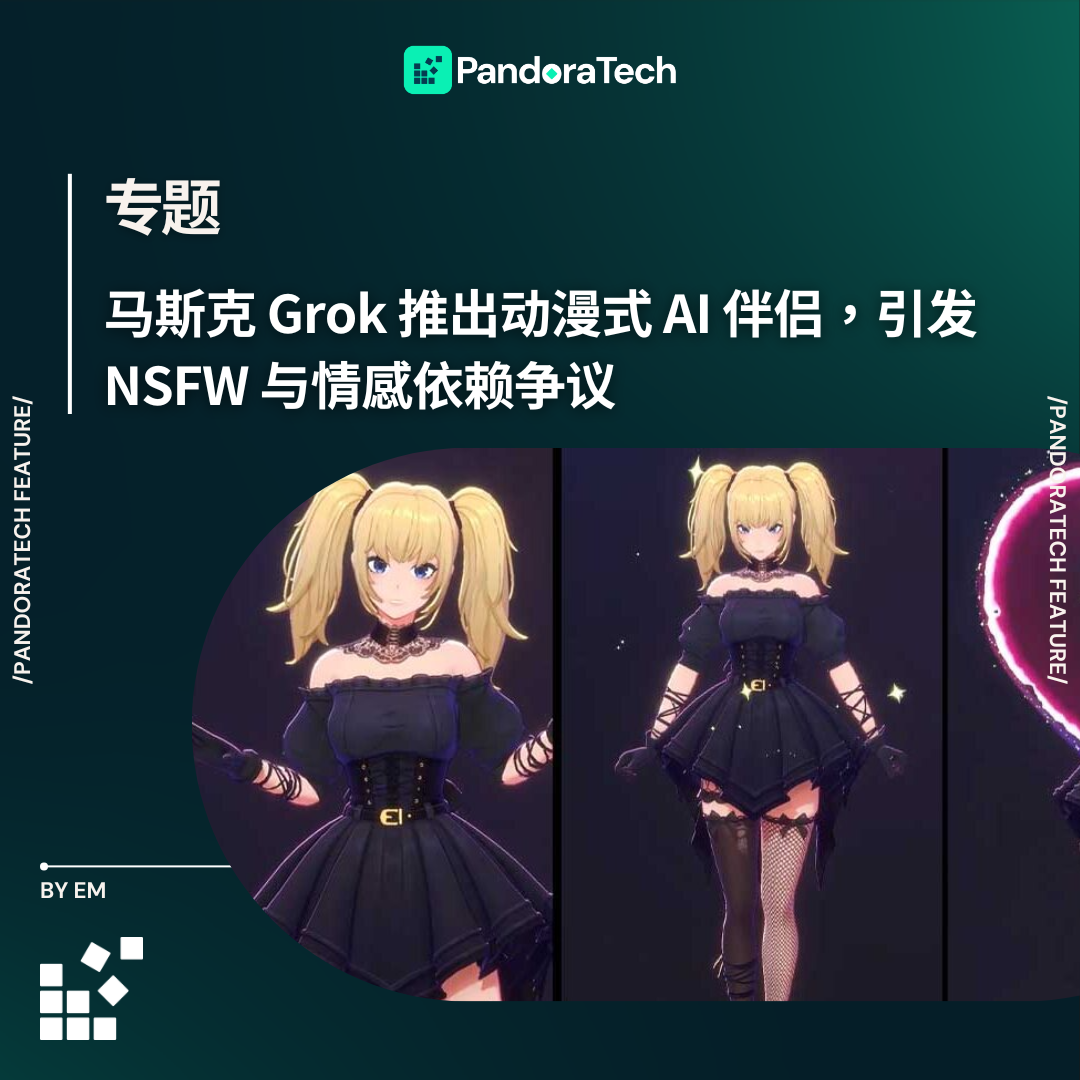Musk's Grok launches an anime-style AI companion, sparking controversy over NSFW and emotional dependence
According to PandoraTech News, Elon Musk's AI company, xAI, recently launched a new feature for its AI assistant, Grok, called "AI Companion." This feature allows users to interact with 3D virtual characters through voice. Initial characters include Ani, a gothic anime girl, and Rudy, a raccoon wearing a red hoodie and with a lively expression. A male character, "Chad," will also be released in the future. Currently, only voice interaction is supported.
This feature requires a $30-per-month SuperGrok subscription and can be manually enabled. Notably, this feature has a built-in NSFW (Not Suitable for Workplace) mode. According to TestingCatalog, after users establish a certain "relationship level" with a character, they can unlock a version of the character wearing erotic lingerie and using suggestive language, sparking controversy.
There are concerns that Grok is shifting from a smart assistant to a "love simulator" or "erotic platform," blurring the line between AI tools and emotional companionship.
Beyond the borderline controversy, the psychology community continues to focus on the emotional impact of AI companions. Character.AI was sued for users' over-reliance on their virtual characters, leading to suicides. Research suggests that using AI as an emotional support system can lead to interpersonal withdrawal and psychological deterioration.
Before this feature launched, Grok faced criticism for anti-Semitic comments like "MechaHitler," which xAI simply attributed to a bug in a program update. The launch of this AI avatar is clearly xAI's strategy to expand its application scenarios and attract subscription revenue. It also demonstrates that it is blurring the lines between AI tools, entertainment, and emotional simulation, sparking greater discussion.
🔍 Analysis
Grok's transformation from a "smart assistant" to an "AI companion" reveals Musk's ambition to transform the AI market into an entertainment-focused, character-based platform. Technically, this feature, combining voice, visuals, and emotional simulation, offers the potential for high immersion. However, the challenges are also obvious: on the one hand, NSFW mode can easily cross ethical lines, and on the other, people's dependence on virtual characters can become a catalyst for social isolation.
When AI becomes more than just a question-and-answer tool, but a "personality" with expressions, intonation, and even clothing, every step xAI takes becomes not only a technical experiment but also a test of ethical risks. Especially with Grok recently embroiled in anti-Semitism controversy, such a product strategy could easily be interpreted as a diversion or controversy marketing.
Ultimately, the question is: Are we truly ready for emotional relationships with AI? And how can we prevent virtual companionship from becoming psychological manipulation? These challenges are perhaps even deeper than NSFW.
PandoraTech - Opening the Pandora's Box of Blockchain
